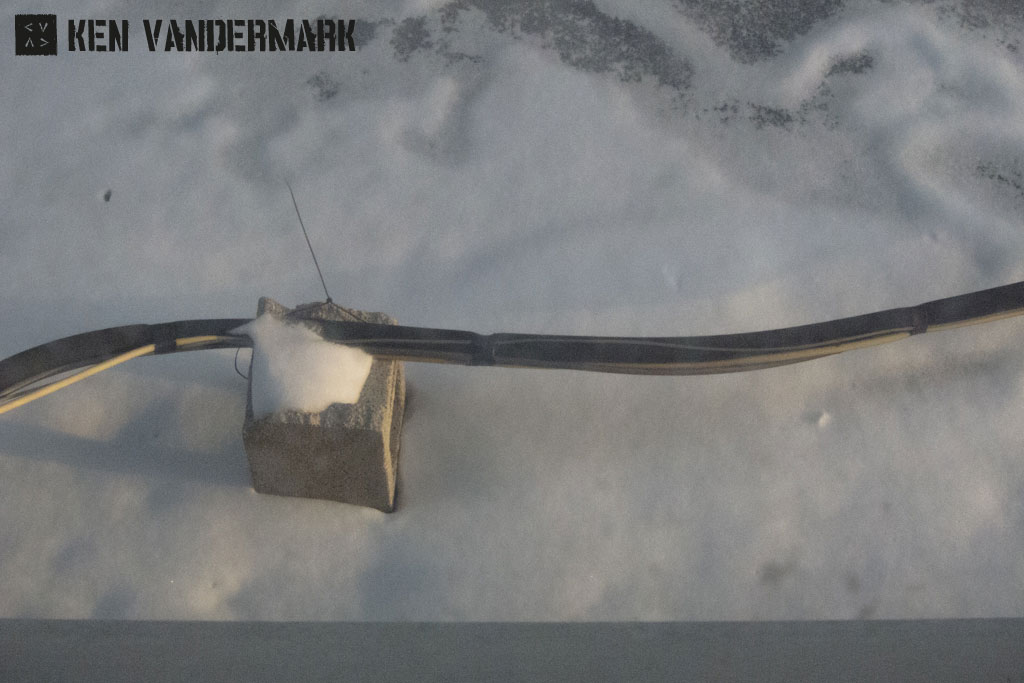

Appreciating Dissonance and Chaos
AAJ: With free music, music that plays with dissonance and chaos, there’s an appeal to it. It’s not just noise, it has purpose, but I have trouble expressing what the appeal is—especially to my wife.
KV: This is somewhat related to some of the stuff we got into in the email discussions. It depends on what people are looking for in terms of a musical experience. If you’re looking for a musical experience to kind of confirm what you think you know, then what you want to hear is going to be a lot different than somebody who wants to have their expectations surprised. I think most people to be honest…my impression based on what is considered to be top 40 radio…aren’t really interested in creative music. And you know, I think there’s creative pop music too, it’s not an elitist stance at all. There’s great music in every kind of form and genre, it’s just a matter of trying to figure out how to try and listen to it. Based on what is considered to be popular music today, I would say they’re not really going to be interested in hearing something that’s different than the status quo.
Free improvised music or whatever we want to term it, isn’t going to be received by lots of people…it’s not selling tens of thousands of records or whatever, it doesn’t surprise me at all. It doesn’t mean that that music isn’t filled with incredible beauty and amazing melodic ideas, that it isn’t filled with things that anybody who is curious about music couldn’t find exciting. I just think a large part of it is preconceptions about what challenging music is or isn’t. If you mention the idea of creative music, or improvised music, or jazz or free improvisation to anybody who had any kind of interest in music in a broad sense, most of them will immediately say, “Well, I don’t care about that,” and I think that’s because of preconceptions.
In my personal experience I’ve found that all kinds of people have been really, really interested and excited by the music I play if they’re able to see it in a live context. Again it comes down to the live experience, and I’ve had this happen so many times in so many different countries that it’s not a fluke that music like I was working with Dylan, Torsten and Paul Rutherford made sense to the people we played it to. It’s music, I mean from my standpoint the music I play is meant for people, it’s not meant for an esoteric art experience that isn’t for everybody. The issue is to defeat preconceptions and try to convince people that they should take a chance to hear something they haven’t heard before. And for some people, you’re right. They’re not interested in something that sounds like an unconventional melody, they don’t want to hear something that doesn’t have, you know, a standard 4/4 backbeat to it. They don’t want to hear something that isn’t played only by electric guitars and electric bass or whatever and has like a pop singer in front, you know?
But there are a lot of people I think, who are really interested and curious about music that also have preconceptions about the kind of music I play, and the people that I work with. And I think many of those people, if they have a musical curiosity, I think they would really respond and be excited by the kinds of things we’re working on. That’s why some of the more, some of the real creative, let’s say rock musicians, have an interest in the music we’re doing. You know people like the Dutch group The Ex worked with a lot of the Dutch improvisers. People like Han Bennink and Ab Baars and whatnot, because they were openly curious people from a musical standpoint and they work with an aesthetic that’s in some ways quite unlike what the ICP Orchestra does, but they saw a creative connection between these things and that, to me, is the thing that’s interesting; that there isn’t just a set of boundary lines between the music I play and every other kind of music that’s out there. I think that there are a lot of constructs that set up boundary lines and categories, and preconceptions, and that’s to keep things, for lack of a better word, in sort of a status quo position now. Things are a lot more fluid than that and I think more people, more listeners would realize it if they were able to experience the music live. In a lot of cases they can’t.
I tour a lot but very rarely do I get to the West Coast of my own country ’cause of the issue of distance and cost, just the cost of getting there. When I tour it’s normally in the Midwest, South, Northeast and in the eastern part of Canada because I can get there by car with a band. And that means, you know, more than two-thirds of the states are places that I don’t play. You can’t, obviously, blame the listener for not being able to see the music live if they can’t [chuckles] get to it.
© 2024 Ken Vandermark – musician & composer | Disclaimer